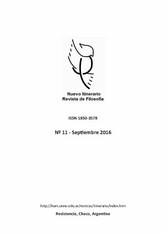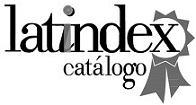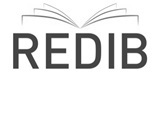The “pedagogical policy” of the historian and the limits of informal education
DOI:
https://doi.org/10.30972/nvt.2017563Keywords:
Abuse of memory, citizen, responsibility, configuration, recognitionAbstract
In the present article we propose to include Memory, History, Forgetting as part of the legacy of Ricoeur's pedagogical policy, initiated with his articles in the journal Esprit. Our author self-perceived himself as a teacher and has several articles on formal education. What characterizes the approach of political pedagogy is that, following in the footsteps of Emmanuel Mounier, it is to take education out of the classroom into the streets. Our article will begin by highlighting the pedagogical component Memory, history, forgetting, pointing out the link between the analysis of memorization and education. We will then go into the abuses of natural memory and emphasize the historian's role in assisting citizens in the work of mourning and memory. The complement of the responsibility of the citizen, however, will impose a limit to the work of the historian, as well as highlight the importance of formal education for its constitution.
References
Amalric, J. L. (2011). Affirmation originaire, attestation et reconnaissance: Le cheminement de l’anthropologie philosophique ricœurienne. Études Ricœuriennes / Ricœur Studies, 02(01), pp. 12-34.
Aristóteles (2001), Ética a Nicómaco. Madrid: Alianza.
Bergson H. (2010). Materia y memoria. Ensayo sobre la relación del cuerpo con el espíritu. Cactus.
Brennan, E. (2023). “Introduction – Ricœur and Education.” Études Ricœuriennes / Ricœur Studies, Vol 14, No 2, pp. 4-6, DOI 10.5195/errs.2023.648.
Casey, E. S. (1987). Remembering. A Phenomenological Study. Indiana University Press.
Correa Arias, C. (2015). Policies of Higher Education and Contemporary Narratives: The Pedagogical Turn of Paul Ricoeur’s Philosophy, International Journal of Arts & Sciences, 08(07), pp. 143–148.
Correa Arias, C. (2017). Justicia Social e Instituciones Educativas en América Latina. Hacia una imaginación pedagógica transformadora. En Cuevas Peña, A. y López González, S. P. (Coords), Justicia, (pp. 75-118). Universidad de Guadalajara.
De Certeau, M. (2006). La escritura de la historia. México: Universidad Iberoamericana.
Fanizzi, C. (2023). "Une phénoménologie de la souffrance enseignante. La condition des professeurs des écoles au Brésil.” Études Ricœuriennes / Ricœur Studies, Vol 14, No 2, pp. 41-62, DOI 10.5195/errs.2023.637.
Fonseca de Carvalho, D. & Busto de Fazio, F. (2023). “Le conflit des traditions. Ricœur et les défis de l’éducation face à un universalisme d’exclusion.” Études Ricœuriennes / Ricœur Studies, Vol 14, No 2, pp. 7-22, DOI 10.5195/errs.2023.635.
Halbwachs, M. (2004). La memoria colectiva. Prensas Universitarias de Zaragoza.
Hoveid, H. & Hoveid, M. H. (2019). Making Education Educational. A Reflexive Approach to Teaching. Springer.
Kant, I. (2007). “Lectures on Pedagogy.” Anthropology, History, and Education, Edinburgh & New York: Cambridge University Press, pp. 434-485.
Lythgoe, E. (2018). La memoria impedida en Paul Ricoeur. Kriterion: Revista de Filosofía, 141, pp. 849-865.
Moratalla, T. D. (2015). Paul Ricoeur: una filosofía para la educación. La ética hermenéutica aplicada a la educación. En Ramírez Hernández, I. E. (Coord), Voces de la filosofía de la educación, (pp. 145-172). México D. F.: Clacso.
Nora, P. (1992). Les lieux de mémoire. Paris: Gallimard.
Osiel, M. (1999). Mass Atrocity, Collective Memory, and the Law. Routledge.
Platón (1988). Teeteto, Diálogos V, (pp. 137-318), Gredos.
Pickett, H. (2023). “A Pedagogy of Responsibility: Autonomy, Vulnerability, and the Future of the Humanities.” Études Ricœuriennes / Ricœur Studies, Vol 14, No 2, pp. 63-77 DOI 10.5195/errs.2023.640
Prada Londoño, M. & Prieto Galindo, F. (2023) “Problems about the Canon in Teaching Philosophy in Colombia. Notes for a Dialogue with Paul Ricœur, Didactics and Curriculum Theory.” Études Ricœuriennes / Ricœur Studies, Vol 14, No 2, pp. 23-40, DOI 10.5195/errs.2023.636.
Ricoeur, P. (1986). Lectures on Ideology and Utopia. Columbia University Press.
Ricoeur, P. (1990). Historia y verdad. Madrid: Encuentro Ediciones.
Ricoeur, P. (1991). Lectures I. Autour du politique. Paris: Seuil.
Ricoeur, P. (1995a). “Reflections on a new ethos for Europe” en Philosophy and Social Criticism, vol. 21 5/6, pp. 3-13.
Ricoeur, P. (1995b). Tiempo y narración I. Configuración del tiempo en el relato histórico. Buenos Aires: Siglo XXI.
Ricoeur, P. (1996a). Sí mismo como otro. Buenos Aires: Siglo XXI.
Ricoeur, P. (1996b). Tiempo y narración III. Buenos Aires: Siglo XXI.
Ricoeur, P. (1998). Critique and conviction. Conversations with François Azouvi and Marc de Launay. New York: Columbia University Press.
Ricoeur, P. (2004). La memoria, la historia, el olvido. Fondo de Cultura Económica.
Ricoeur, P. (2008a). Lo justo 2. Estudios, lecturas y ejercicios de ética aplicada, Madrid: Trotta.
Ricoeur, P. (2008b). Écrits et conférences 1. Autour de la psychanalyse, Paris : Seuil.
Ricoeur, P. (2012). Tareas del educador político. En Política, Sociedad e historicidad. (pp. 17-32). Buenos Aires: Prometeo.
Rousso, H. (1987). Le syndrome de Vichy (1944-1987). Paris: Seuil.
Strawson, P. F. (2013), Individuals. An Essay in Descriptive Metaphysics. Routledge.
Todorov, T. (2000). Los abusos de la memoria. Barcelona: Paidós.
Wieviorka, A. (2006). The Era of The Witness. Cornell University Press.
Published
Versions
- 2024-09-18 (2)
- 2024-06-28 (1)
How to Cite
Issue
Section
License

This work is licensed under a Creative Commons Attribution-NonCommercial 4.0 International License.
Les autores ceden a Nuevo Itinerario los derechos de publicidad de sus trabajos, toda vez que hayan sido admitidos como parte de alguno de sus números. Ello no obstante, les autores retienen los derechos de propiedad intelectual y responsabilidad ética así como la posibilidad de dar difusión propia por los medios que consideren.












51.jpg)

